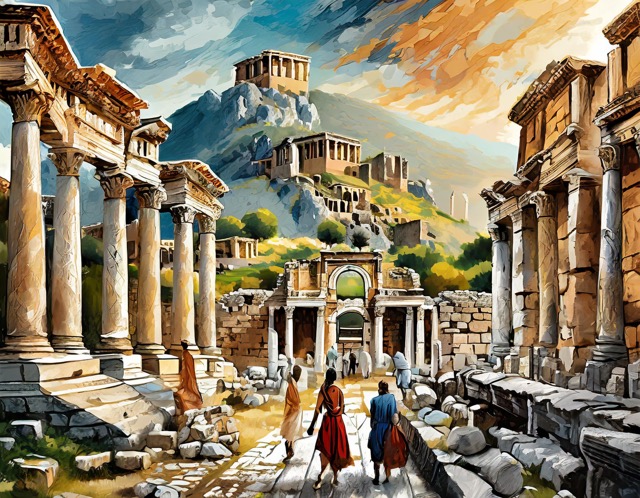- Home
- History
History

History
The ancient city of Ephesus, located in modern-day Turkey, boasts a long history dating back to the Neolithic Age, around 6000 BCE. Thanks to its strategic location near the former mouth of the Kaystros (Küçük Menderes) River, Ephesus became one of the most important ports of the ancient world and a major sanctuary dedicated to Artemis, the principal goddess of Anatolia. Throughout history, Ephesus maintained its significance as a crossroads of trade, culture, and spirituality, eventually becoming a critical center for early Christianity.

The architectural marvels of the city, including the Library of Celsus, the Great Theater, and the Temple of Artemis—one of the Seven Wonders of the Ancient World—highlight its historical and cultural depth. Ephesus was more than just a trade hub; it symbolized the blending of diverse cultures, such as Greek, Roman, and Egyptian, and reflected a vibrant social structure. The agora of Ephesus, its marketplace, was the heart of economic and social life, where goods from distant lands were traded, and ideas were exchanged between local residents and visitors from across the known world.
Over time, the silting of Ephesus’s harbor caused the city to gradually lose its status as a major trade center. Despite this decline, the legacy of profound reflections on human existence and the nature of change, as conveyed through the teachings of philosophers like Heraclitus, continues to endure. Now recognized as a UNESCO World Heritage Site, Ephesus preserves this invaluable heritage and continues to inspire visitors from around the globe.
